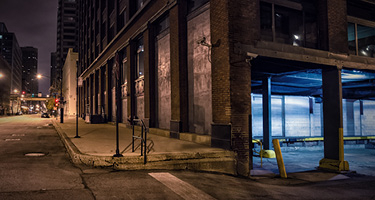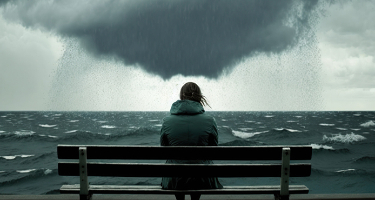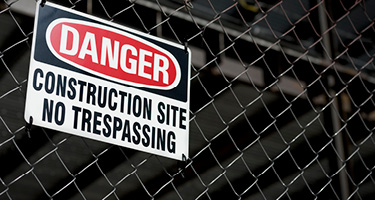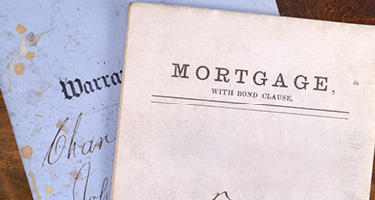A not infrequent occurrence in a New York personal injury law firm is to hear from a potential client who calls following the accidental death of a loved one. It might result from a horrific motor vehicle accident, medical malpractice or an accident caused by a defective product. Sometimes the victim—the Decedent—will be a parent who was employed and supporting a family or providing childcare to young children. But in other cases, the Decedent will be a long-retired elderly parent who was predeceased by their spouse and is no longer supporting anyone. And at some point, most attorneys will receive a call from a parent who has lost a young child in an accident.
All of these cases are awful, especially the ones involving the child. And yet, the damages which might result from each of these scenarios is markedly different. Under current New York law, damages for wrongful death are limited to a survivor’s pecuniary—monetary—loss as a result of their loved one’s death. That means that the amount of recovery will depend upon the financial loss caused by the death.
So, stop and think about it. What is the financial loss caused by a 30-year-old parent supporting a spouse and two children under the age of five? What is the financial loss caused by an 82-year-old parent who is not relied upon for financial support? And what is the financial loss caused by a three-year-old child killed in a car accident?
The sad truth is that the New York Wrongful Death statute does not allow damages for the potentially enormous emotional loss suffered by the survivors. That’s why the wrongful death of a young child—however horrific in nature—is worth relatively little in terms of financial damages. If it’s not awful enough to sit across from a devastated parent telling you how their child died, it’s even worse when you explain the limitations of the New York law on wrongful death damages.
But there is hope. During the 2022 legislative session, the New York State Legislature passed the Grieving Families Act. This statute amends the antiquated New York Wrongful Death law in several ways. First, it nearly doubles the time limit to file a Wrongful Death lawsuit. Currently that time limit is two years, but the Grieving Families Act extends the limit to three years and six months.
More importantly, the Grieving Families Act permits damages for the family’s emotional loss, and it greatly expands the definition of “family.” The current statute permits damages to be awarded to those who would be entitled to a distribution if the decedent dies without a will. That entails a line of succession, starting with a surviving spouse, and then children, parents, etc. The Act modernizes the definition of a family, such that “close family members” would be eligible to receive damages. Not only a spouse, but also a domestic partner, a parent and a stepparent would be eligible. In fact, the law would permit a jury to determine the definition of “close family members” based upon the specific circumstances relating to that person’s relationship with the deceased.
The current New York Wrongful Death statute leads to some awful anomalies. Since a young child does not support anyone, that child’s death would not result in a particularly high verdict or settlement. If, however, that child was to suffer a serious fracture which requires multiple surgeries with a lengthy recovery and future medical bills, that case could result in a seven-figure settlement or verdict. If a vehicle strikes and kills a widowed 85-year-old retired grandmother who lives alone and no longer supports anyone, the case really isn’t worth much—even though it will invariably cause anguish to her surviving children and grandchildren. But if that same 85-year-old grandmother suffers disabling injuries which require extensive medical treatment and confinement to a rehabilitation facility, the case will be worth much more.
So, while we are not suggesting that anyone would have this intent, yes, in New York at least, a defendant or insurance carrier might well be better off financially if a child or elderly person dies instead of suffers major injuries. Call it the law of unintended consequences, but it doesn’t alter the law’s effect.
Other examples abound. If 70-year-old never married, childless twin sisters reside together, and rely upon each other emotionally, the death of one of them as a result of nursing home malfeasance will leave the survivor with little means of recovery. The death of an older sibling will no doubt leave a younger child who looked up to that older brother or sister with permanent emotional scars. The law does not provide a remedy in that instance, since the older sibling did not financially support the younger child.
The law of torts is based upon accountability; in theory, the ability of an injured party to recover damages for a loss helps to keep wrongdoers accountable for a negligent act. So while we may want to get home earlier, one of the things that discourages us from driving too fast on the highway is the possibility of causing serious injury to other drivers. The current New York Wrongful Death statute is a law behind the times.
The New York Grieving Families Act was passed to address these issues. The Act awaits the signature of the Governor. It’s time to correct a terribly outdated situation. The law should be signed and signed now.
Michael L. Taub is a partner with The Platta Law Firm, PLLC, in New York City. He has been a member of the New York Bar, and a practicing attorney for 38 years.































